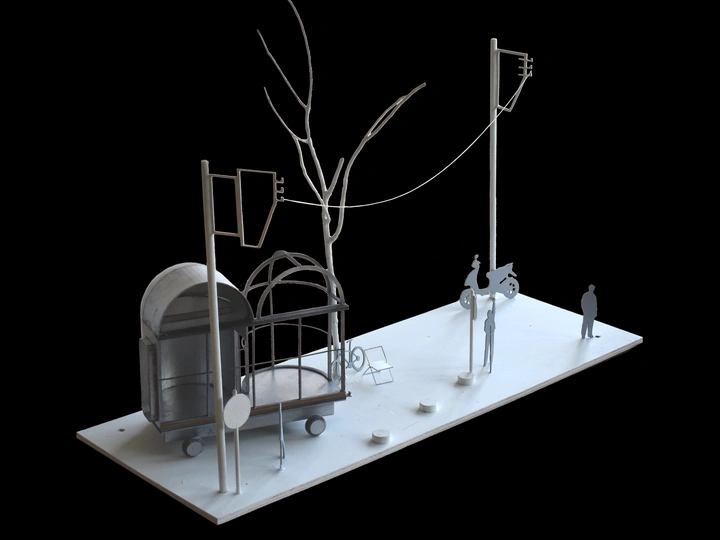Street Runners

I am an architect and researcher based in Thessaloniki, with a background in architecture from the Aristotle University of Thessaloniki. My practice moves between independent projects and collective work, exploring the intersections of architecture, urbanism, and the commons. I have worked with architecture studios in Greece (Nikiforidis & Cuomo, Deda & Architects), Belgium (Graux & Baeyens), and Spain (Lacol arquitectura cooperativa), and have participated in exhibitions and workshops both locally and internationally.
My diploma project was selected as a finalist for the 2025 EUmies Awards - Young Talent, and I have contributed to initiatives such as the Greek Pavilion at the Venice Architecture Biennale (2021) and the Biennale of Young Greek Architects (2023). I was also awarded 1st prize in the international competition of Thessaloniki Design Week 2023. Currently, I am part of Fatura Collaborative, a Thessaloniki-based architecture collective, while developing independent research and spatial projects focused on situated practices, civic space, and emerging forms of collective life. As of September 2025, I will continue my studies at the UPC in Barcelona, in the international master’s program Contemporary Project - Architectures of Collective Living, further expanding my investigation into cooperative spatial models.
Urban delivery workers operate under rigid conditions, lacking infrastructure to support their needs. Unlike workplaces that offer flexibility, delivery workers must adapt the city itself into a workspace, often at the cost of their well-being. Informal delivery stands highlight the absence of basic amenities, rest areas, and social spaces. This project addresses the need for dedicated infrastructure, exploring how architecture can offer meaningful support and foster community rather than reinforce exploitation.
While many workplaces offer stability and flexibility, last-mile logistics workers must rely on the city itself as a makeshift workspace, often without sanitation, rest areas, or social spaces. To counter this, the project introduces interventions near delivery stands, informal gathering spots where workers pause between deliveries. The design follows three strategies aimed at improving efficiency, safety, and collective empowerment. At the smallest scale, compact urban capsules provide restrooms, charging stations, and lockers, offering basic amenities. Their mobility allows adaptation to shifting delivery zones. On a larger scale, vacant ground floors and apartments are repurposed into temporary rest spaces. These secure areas restore a sense of stability, offering privacy during breaks. Placed near key delivery stands, they bridge the gap between public and personal space. Finally, a delivery hub in the city center fosters social interaction and professional support. Located near a major delivery stand, it includes communal kitchens, showers, lockers, and transportation maintenance areas. More than a functional space, it builds worker solidarity, creating a shared environment. Rather than imposing a fixed solution, the project emphasizes adaptability and responsiveness. By integrating architecture into the urban supply chain, it challenges the invisibility of this workforce, advocating for a city that supports -not exploits- those who keep it running.